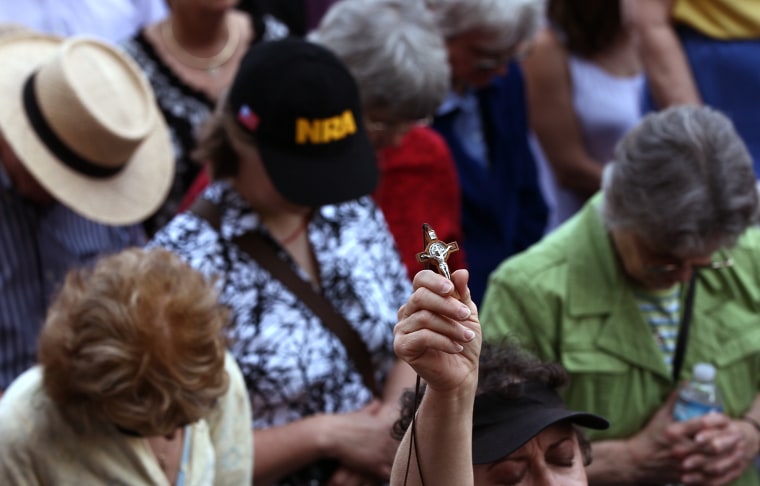The defining debate within the Republican Party over the last several months has pitted Tea Partiers against the GOP's Corporate wing. The two contingents have already begun gearing up for some notable primary fights in advance of this year's midterm elections.
But there's another wing of the party that's apparently feeling a little left out.
On a recent snowy day in the Washington suburb of Tyson's Corner, Va., some of the religious right's wealthiest backers and top operatives gathered at the Ritz-Carlton to plot their entry into the conservative civil war. Their plan: take a page out of the playbooks of Karl Rove and the Koch brothers by raising millions of dollars, coordinating their political spending and assiduously courting megadonors.... It's all geared toward elevating the place of social issues like abortion and gay marriage in conservative politics.
To be sure, all of this makes sense. The religious right, as a political movement, wants to remain relevant with its allies, so it stands to reason that leading social conservatives would begin plotting to defend and expand its influence. It may make intra-party tensions a little more complicated in the coming months, but the religious right probably doesn't much care.
The trouble, though, is in the assumption that social conservatives have been irrelevant of late.
Indeed, the Politico article stated as fact that social issues have "been largely relegated to the sidelines" in Republican politics, and the GOP's competing wings have both "steered away from social issues they deem too divisive."
I can appreciate why this might seem true -- after all, it's not as if John Boehner, Mitch McConnell, and Eric Cantor run around prioritizing the culture war above other GOP goals. But the closer one looks, the more these assumptions start to crumble.
For example ,the Guttmacher Institute, a non-profit reproductive health research organization, found that "abortion was at the forefront of the state legislative debate during the past three years -- so much so that states added more restrictions to the books from 2011-2013 than during the entire preceding decade."
This isn't the result of a party steering away from divisive social issues; this is the opposite.
What's more, as we discussed a few months ago, let's not forget that Republican leaders lined up to kiss the religious right movement’s ring at the 2013 Values Voter Summit, and GOP officials incorporated their opposition to contraception into the government-shutdown strategy. While Republican governors spent much of the year trying to limit women’s reproductive choices, it's not limited to state government -- just about the only bills House GOP lawmakers find it easy to pass deal with abortion.
The Republican Party's commitment to the culture war remains alive and well. The religious right is worried about lost relevance, but the movement already has considerable influence over the GOP's direction.
